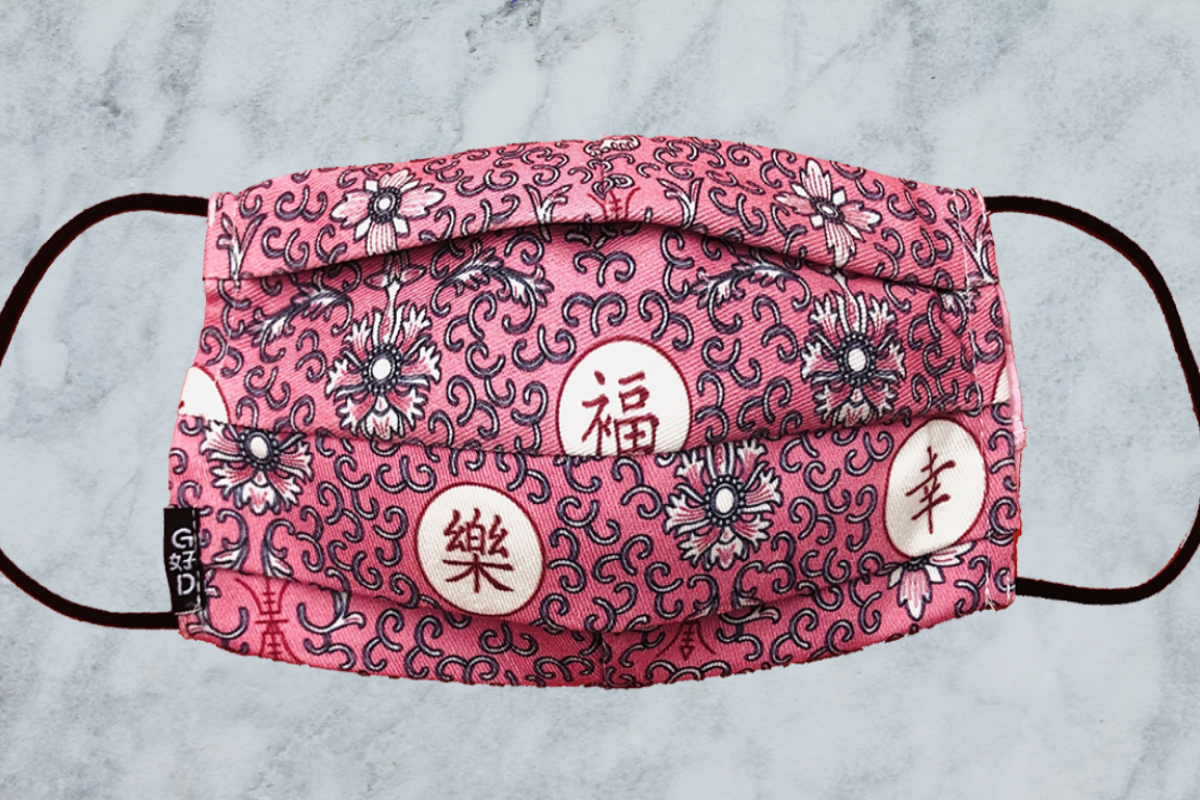
- With masks becoming a staple in our everyday lives during coronavirus, more people are moving away from disposable ones and finding long lasting alternatives
- Our junior reporter Tiffany Tsoi spoke to three Hong Kong businesses on how they are catering for customers amidst the Covid-19 pandemic
 G.O.D. is one of the many companies making Hong Kong-focused, fabric face masks. Photo: G.O.D.
G.O.D. is one of the many companies making Hong Kong-focused, fabric face masks. Photo: G.O.D.The debate over whether to wear face masks has divided the world for as long as we have been battling the coronavirus. The differences are often cultural – in Asia, wearing a face mask is not only expected, but often compulsory, unlike in the West, where it is far less prevalent. Even so, none have been as quick to embrace the face mask as those in the fashion industry.
With fashion and accessory businesses facing economic hardship in the wake of the pandemic, by pivoting to produce face masks, they are finding a means to both stay afloat and help meet insufficient supply. With a mask compliance rate of nearly 100 per cent here in Hong Kong, we too experienced a dire shortage at the height of the outbreak. But local businesses and individuals responded by channelling their creativity into producing stylish coverings to satisfy the rising demand among Hongkongers.
Mask Tailor, a fabric face-mask business based in Hong Kong, was set up by Nick Willsher when he noticed how wasteful single-use surgical masks were. The founder of local entertainment and lifestyle guides hkclubbing and wcity, Willsher realised he had time on his hands when the pandemic put the local recreation industry on hold. So he collaborated with a fashion designer friend to launch Mask Tailor.
“Reusable masks made so much more sense, especially with comfortable fabrics,” he says. The Mask Tailor website offers face masks in a range of patterns, and they can even be customised.
While Mask Tailor provides a cheaper and more environmentally friendly alternative to surgical masks, it has also been giving away face masks to Hong Kong artists and performers who have been out of work during this difficult time.
Bigger Hong Kong brands have also jumped on the bandwagon, producing colourful face masks for locals.
Hong Kong lifestyle retailer Goods of Desire, commonly known as G.O.D., is one of them. “We started making face masks to respond to a new need in society. At the time, there was a shortage of medical masks on the market,” says Douglas Young, co-founder and CEO of G.O.D.
“I think face masks are here to stay. People are getting used to wearing face protection for viruses of any kind.
HK Mask project was formed in collaboration with a local social enterprise.
“So it’s like when a car seat belt was introduced. At first, it was inconvenient or uncomfortable, but then people got used to it.”
The coronavirus has been tough for business, and face coverings have helped to keep G.O.D. busy during the pandemic. Many craftspeople, some of whom had retired, were brought back to work on the G.O.D. masks.
It’s not only businesses which have contributed to meeting the demand for face masks in Hong Kong. Dr Kenneth Kwong, a former chemistry lecturer at Chinese University, launched HK Mask project, in collaboration with the local social enterprise, Sew On Studio.
Why do I have bad breath when I wear a face mask?
The outlet designs and sews the masks, while their replaceable filters are made by Focus Filtration and Engineering, a company based in Hong Kong. The dHK Mask design can be downloaded, and tailored to suit customers’ taste.
Kwong’s initial aim was to make cheap, reusable, fabric masks but he attracted a lot more attention once he made his designs more “fashionable”. Even manufacturers from Japan reached out to him to discuss the possibility of a joint venture. They were interested in creating a product with Japanese characteristics, such as Hello Kitty, to suit their buyers.
The project is a huge success, but Kwong does not make any profit. “I even paid for the press conferences with my own money,” he says. The ongoing health crisis comes before profit or politics, he adds.
Nick Wilsher of Mask Tailor says he started the business to provide cheaper and more environmentally-friendly masks to Hong Kong.
Some fashion brands, such as Boohoo, have been accused of exploiting the pandemic to make money.
But with face masks becoming the new normal in Hong Kong, more and more entrepreneurs will look to make a mark in the industry.
There’s no denying that fashion plays an important role in normalising the wearing of masks, and it can help make the experience better, too. “If it encourages mask-wearing, then that can only be positive,” says Willshur.